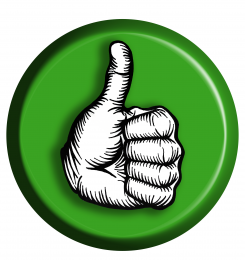Today marks the beginning of Israeli Apartheid Week. IAW describes itself as a week to “to educate people about the nature of Israel as an apartheid system and to build Boycott, Divestment, and Sanctions campaigns as part of a growing global BDS movement.” Its opponents paint a different picture, calling it a hateful week that discourages healthy dialogue and unfairly singles out the state of Israel; some have called for the university to ban it on the basis that they are anti-Semitic. The administration of the University of Toronto has said that while they acknowledge that these events may be controversial and heated, there is a place for controversial and heated events on campus. I won’t focus on the legitimacy of each side’s arguments, but instead I applaud the administration for taking the right stand when it comes to defending free speech.
Opponents of Israeli Apartheid Week have called on the administration to prevent such events from happening on campus. Their central complaints are that the claim that Israel is an apartheid state is not true and therefore has anti-Semitic undertones and that students feel intimidated on their own campus and are shouted down when they attend IAW events. Whether IAW is anti-Semitic or not is still the subject of vigorous debate, and because there is no clear consensus on this issue, we should give IAW the benefit of the doubt and allow it to continue. Regarding the intimidation, opponents of IAW point to the fact that when students pose opposing points of view, they are called “racist,” and are faced with chants of “shame,” and are shouted down. While these are all signs of an unconstructive debate, this is not a reason to ban the event. This name-calling and vitriol is not limited to IAW. Whenever you put together two opposing sides of a divide that are passionate about an issue this conflict arises. This behaviour occurs in the House of Commons and at political town hall meetings. Should we censor those? Debates, even if heated and radical, are part of a healthy democracy.
Furthermore, IAW at U of T is fairly peaceful and mainly consists of a series of academic lectures. We are not a campus where people holding opposing points of view are in danger of being attacked. Such a characterization of our campus — no matter what time of the year it is — is misleading. There are no big rallies denouncing Israel like the one held in 2009 at Vari Hall at York University. At this rally, both sides were guilty of contributing to the heated environment. Footage of the rally shows both sides engaged in shouting and chants, and the waving of flags with neither side willing to engage in a constructive dialogue about this issue.
So what is clear is that there is no constructive dialogue between the respective sides. Both sides have talked about engaging in such a dialogue, but neither wants to take the steps to achieve it. The pro-Palestinian side only focuses on the Israelis and neglects to mention both that Hamas does target civilians and that some of the rhetoric it uses is anti-Semitic. The pro-Israeli side, on the other hand continues to characterize the conflict as one of anti-Semitic terrorists attacking a peaceful democratic state. They give no credence to the fact that the IDF has frequently overstepped the boundaries of acceptable self-defense, nor do they acknowledge that the Palestinians have legitimate grievances when it comes to their human rights and the way the state of Israel treats them (as documented by organizations like B’Tselem). Both sides need to look past their differences and find solutions. This involves looking at what your side has done and trying to understand why the other side feels the way it does — people don’t pick up a gun for no reason. But, if we cannot do this, then we should at least protect the rights of all groups to speak their mind freely on campus and prevent censorship.



